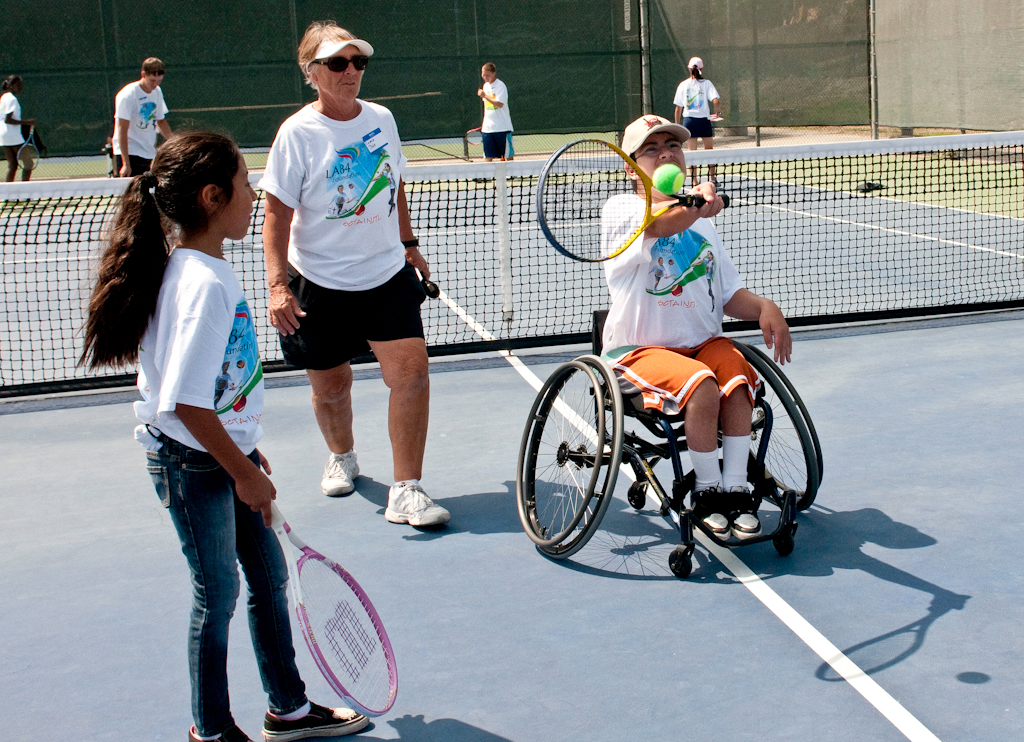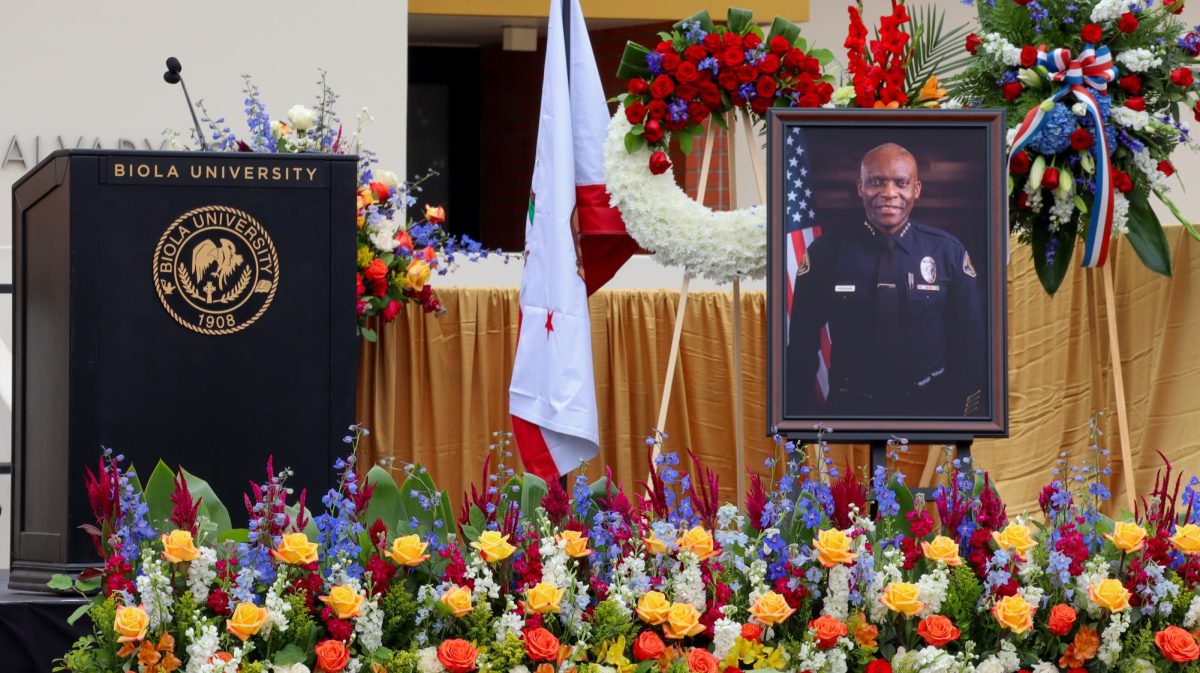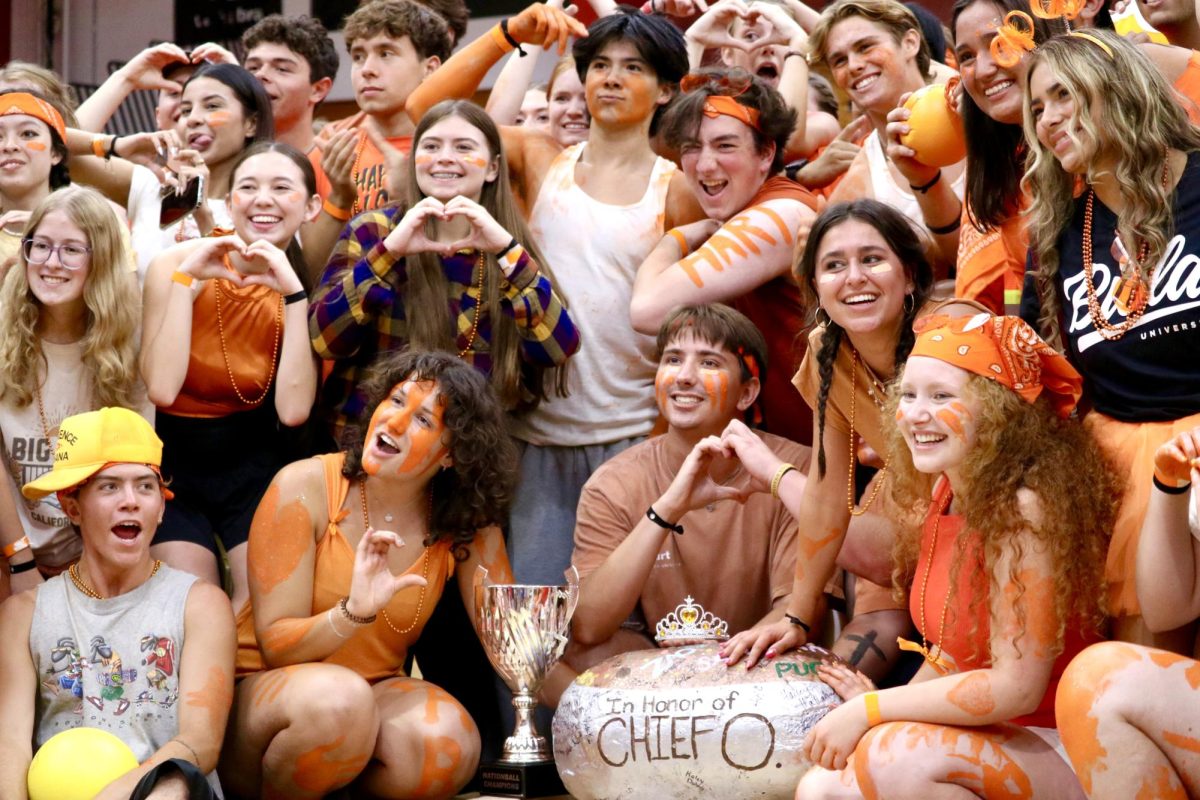
Dee Henry developed Biola’s tennis program in 1971 and is well-known around campus for her service to others. | Courtesy of Dee Henry
The United States Olympic Committee has chosen Dee Henry, Biola women’s tennis coach, as the U.S. Tennis Association’s volunteer coach of the year, nominating her for the national award.
Characterized as a coach who receives no payment of any kind in exchange for serving, Henry was nominated along with 11 other coaches from other various sports. Before her nomination to represent USTA, Henry said that she had never heard of the award. As a result, she was pleasantly surprised when a friend of hers called with the news.
“It blew me away,” Henry said.
Hired by Biola in 1971 to develop a tennis program, Henry has been coaching ever since. During her 40 years at the school, she has established a women’s tennis program that regularly competes against teams within the Golden State Athletic Conference that are also highly ranked in the NAIA.
Wheelchair tennis program produces ranked players
In 2008, Henry started the Biola wheelchair tennis program where she volunteers her time teaching people of all different skill levels. The program has produced 10 nationally-ranked and three internationally-ranked International Tennis Federation players, such as Eddie Medel and Vicki Sarantakos. Earlier this month she had a team compete in the Special Olympics Orange County regional championship where seven players qualified for the Southern California fall games.
Even so, Henry says the program does not only exist for the purpose of competing in tournaments and becoming ranked. Through the years, she has coached a number of physically and mentally handicapped youths and adults, including some who didn’t even know how to move around the court.
“Whoever God brings you, that’s who you serve,” Henry said.
Henry known on campus for her service
Boldly coloring all aspects of her life, Henry’s heart for serving is apparent even to her colleagues and players. In 1996, Jim Henderson crossed paths with Henry for the first time at a children’s tennis program his kids were attending. At the time, Henderson coached little league baseball, but Henry had other plans in mind. That first interaction sparked the beginning of his college coaching career and he started the Biola men’s tennis team a year later. Her example of putting character above performance influenced Henderson’s own coaching style. Henderson calls himself Henry’s biggest fan.
“She’s done so much for the community and so much for me,” Henderson said. “All because this woman thought I had something to give.”
Sophomore Kelly Thompson started playing for Henry on the women’s tennis team in the fall of 2010 and worked for her over the summer. Thompson says she’s never had a coach quite like Henry before who is interested in her players’ spiritual growth just as much as cultivating their tennis skills. Because of Henry’s example of service, many of the girls regularly participate in the wheelchair league by pairing up with handicapped players during games.
“She is always there to help,” Thompson said. “If there’s something that any of the girls needed she would be willing to do whatever she could. I’ve never met anybody that serves as much as she does.”
Henry’s passion for tennis motivates only a fraction of her legacy. Service makes up the majority of her coaching and is a large part of who Henry is. She is constantly volunteering her time and efforts wherever she can. From running youth programs to helping out at tennis tournaments, Henry’s love of people and helping others speaks loudly for itself.
“I want to teach people to give back,” Henry said. “And there’s only one way to teach, and that’s to be a role model.”







